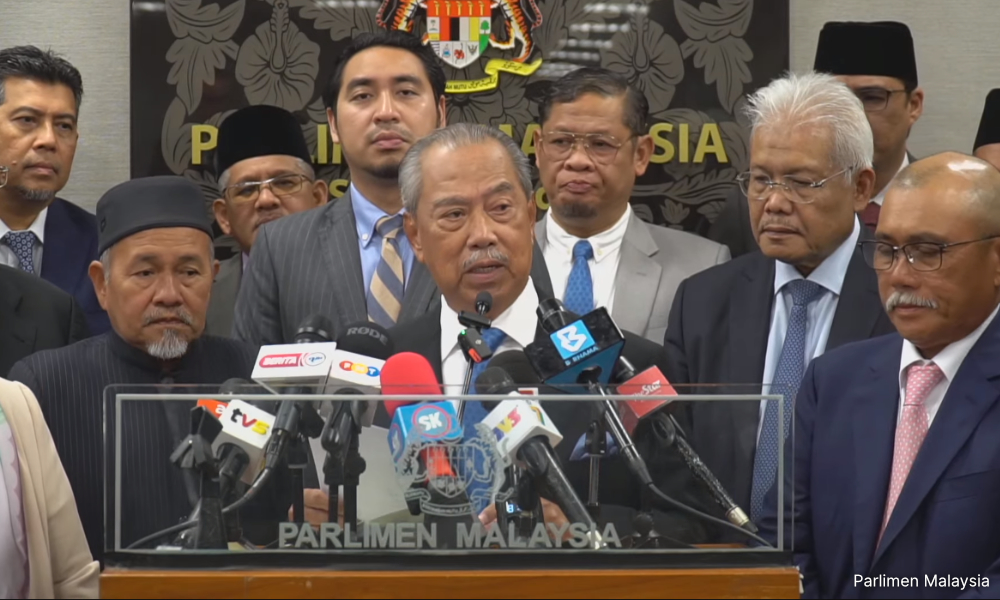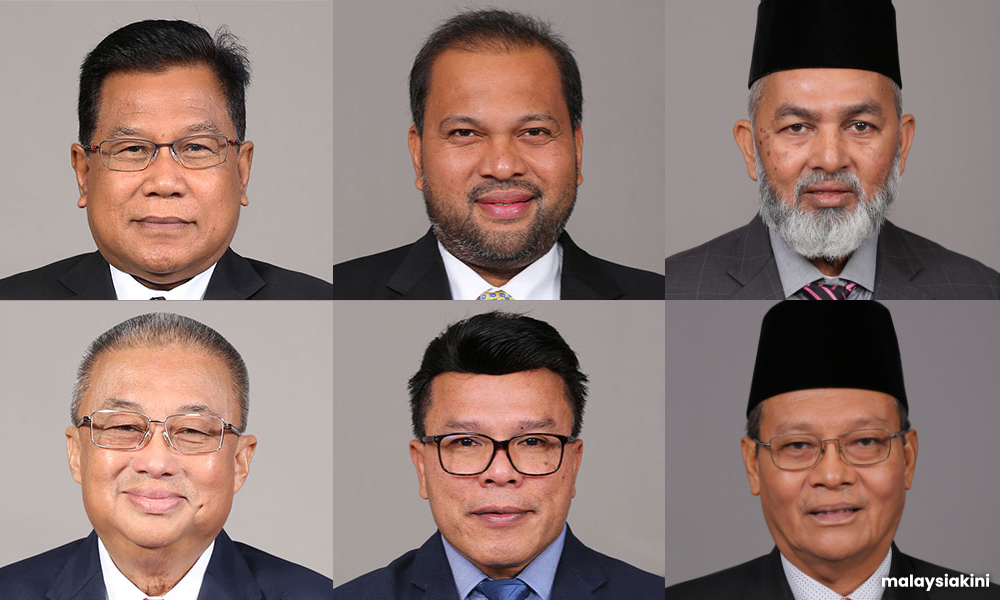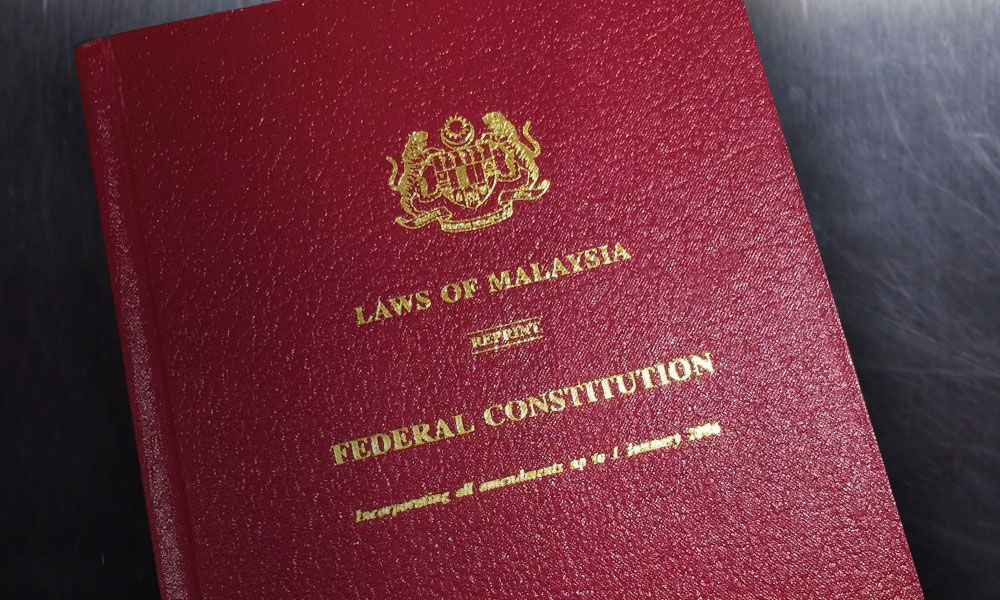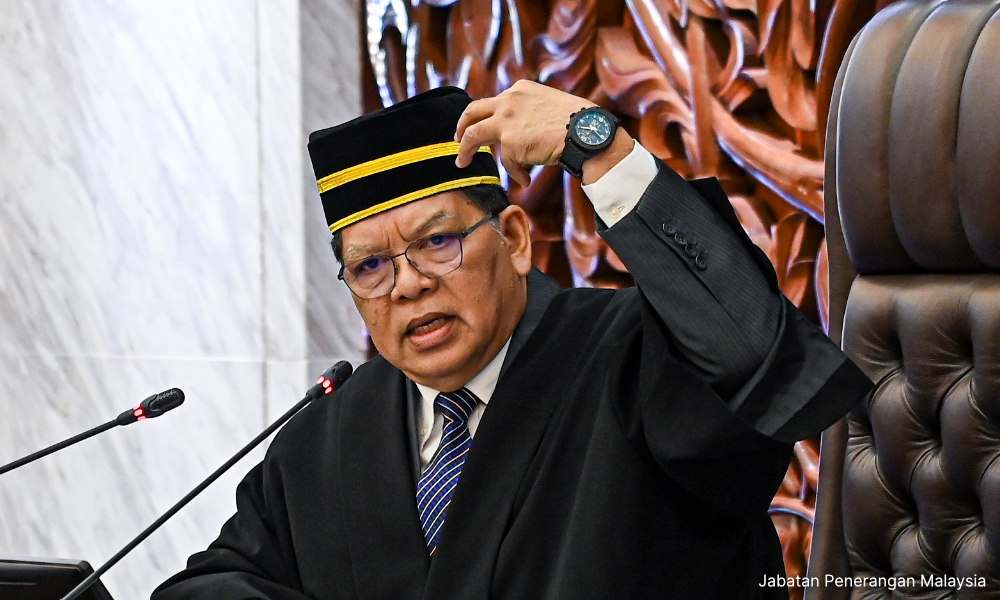Six MPs who stood in the last general election under the Bersatu’s logo switched their support to the prime minister after having been elected by the voters in their respective parliamentary constituencies.
Yes, they decided to back Prime Minister Anwar Ibrahim in defiance of the party’s stance as the opposition. It was not clear what they had in mind when they decided to switch loyalty.
The six MPs are Syed Abu Hussin Hafiz Syed Abdul Fasal (Bukit Gantang), Zahari Kechik (Jeli), Mohd Azizi Abu Naim (Gua Musang), Iskandar Dzulkarnain Abdul Khalid (Kuala Kangsar), Suhaili Abdul Rahman (Labuan), and Zulkafperi Hanapi (Tanjong Karang).
In the meantime, Bersatu had amended its constitution to prevent its members from switching sides. The said amendment was duly approved by the Registrar of Societies (ROS) and came into effect on April 1, 2024.
Before the amendment to its constitution, the party passed a motion for the changes to prevent more MPs from switching allegiance and declaring support for other parties.
In justifying the aforesaid amendment, Bersatu president Muhyiddin Yassin reiterated that the amendment of Clause 10 of the party constitution was aimed at streamlining it with the anti-hopping provision under Article 49A of the Federal Constitution.

The Bersatu chief was referring to the anti-party hopping legislation that was introduced into the Federal Constitution via a bill passed by the Dewan Rakyat on July 28, 2023.
By virtue of Bersatu’s constitutional amendment, all six lawmakers who pledged support for Anwar’s administration have to immediately vacate their seats should they continue supporting the coalition government after the amendment was passed.
Stubborn defiance
But it did not happen that way. All the said MPs, however, stuck to their guns and refused to bow down to their party’s directives.
Needless to say, Bersatu treated their utter defiance of the party’s instructions with contempt. As far as Bersatu is concerned, the recalcitrant attitude of the six MPs was mind-boggling.
The party’s chief whip Ronald Kiandee then submitted a seat vacancy notification against the six MPs under Article 49A of the Federal Constitution to the Dewan Rakyat speaker Johari Abdul.
The said six MPs then submitted a letter of explanation to Johari on June 27, 2023, in response to Bersatu’s demand to vacate their seats.

According to Bukit Gantang MP Syed Hussin, their letter was sent to the speaker in order to facilitate Johari’s consideration before making any decision.
In their letter, the six MPs also questioned the legitimacy of their expulsion from Bersatu, which was carried out by the party’s supreme leadership council.
They, inter alia, argued that the expulsion failed to comply with Article 49A(1) of the Federal Constitution, which in their view clearly states that the right to vacate a seat is subject to a declaration made by the MPs (to leave their parties) themselves.
Yesterday, the speaker held that the six MPs do not have to vacate their seats. In essence, Johari disagreed with Bersatu’s declaration all six seats ought to be vacated as the six MPs were deemed to have been expelled by their party.
In other words, the speaker refused to declare the casual vacancy of the six parliamentary seats concerned.
Does the speaker have the power?
Legally speaking , this issue essentially boils down to the power of the Dewan Rakyat speaker under Article 49A(3) of the Federal Constitution, which stipulates: “Whenever the speaker receives a written notice from any member of the House of Representatives on the occurrence of a casual vacancy among the members of the House of Representatives under this Article, the speaker shall establish that there is such a casual vacancy and notify the Election Commission accordingly within 21 days from the date he received the written notice.”

Some lawyers argue that the speaker has no power not to declare the casual vacancy of the six seats upon receiving the seat vacancy notification from Bersatu.
In other words, the speaker has no business at all to go beyond the four corners of the seat vacancy notification which he duly received.
The speaker’s constitutional function under Article 49A(3) of the Federal Constitution is merely to carry out the wish and intent of Bersatu. Period.
The speaker has no power to substitute or replace Bersatu’s decision under the guise of exercising a power of interpretation. After all, under the Societies Act, the decision of any political party is final and it shall not be questioned by any court of law, let alone the speaker.
It so happens the existing speaker has no legal background but he is considered as a seasoned MP.
To be fair, I must say there is no constitutional requirement for a speaker to possess any legal background.
One may therefore argue that since many of our past speakers had solid legal backgrounds, such a requirement may be tantamount to only be part of constitutional conventions.

Anyway, there is a second opinion which views the right and duty to determine whether a casual vacancy has arisen in the Dewan Rakyat rests solely on its speaker, and only the speaker’s decision matters.
This view also argues that a political party’s role is limited to notifying the speaker that a member has resigned or ceased to be its member. Period.
Disregarding anti-hopping law’s intention
Being one of the members of the special committee that drafted the said constitutional provision, with the greatest respect, I tend to agree with the first interpretation which in my view truly reflects the parliamentary intention when we - the committee members - drafted the law.
In my view, the committee had no intention of conferring very wide powers for the speaker, so much so they may go beyond the parameters of the letter of notification they received from any political party which finally decides the faith or status of its MPs.
By making a decision that is clearly contrary to the decision made by any political party, I submit the speaker has unconstitutionally exceeded his power and such a decision may be infected by elements of illegality and irrationality.
Anyway, there is a strong likelihood that this issue may land in a court of law. Let us wait and see. - Mkini
MOHAMED HANIPA MAIDIN is a former deputy minister in the Prime Minister’s Department.
The views expressed here are those of the author/contributor and do not necessarily represent the views of MMKtT.



No comments:
Post a Comment
Note: Only a member of this blog may post a comment.